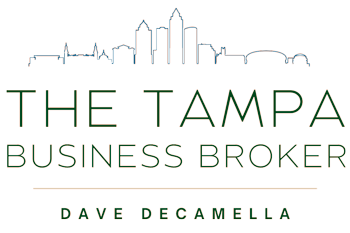
If you’re just getting started with buying or selling a business, you may encounter some unfamiliar terminology. Many of these terms are essential, and understanding them can be highly valuable. To make things easier, we’ve compiled a short glossary of key terms used in business transactions to help clarify their meanings.
Key Terms to Know When Buying or Selling a Business:
Add-backs
Some or all expenses are added back to net income to approximate the business’s actual economic earnings as closely as possible.
Asset Sale
This term has two meanings, depending on its context:
1. A method for a business owner to transfer ownership of both tangible and intangible assets, as well as potentially some liabilities, to another party without changing the ownership entity.
2. The sale of a business that is no longer operational as a viable entity, where the price is determined solely by the value of its tangible assets.
Blue-Sky
The intangible value of a company, often representing its goodwill, brand reputation, customer loyalty, and potential for future growth beyond the value of its tangible assets, essentially meaning the perceived worth that goes beyond what’s reflected on a balance sheet; it’s often used when discussing a company’s market value that exceeds the sum of its tangible assets.
Business Valuation
A process and set of methods used to assess the economic worth of an owner’s stake in a business. Valuation helps financial market participants decide the price they are prepared to accept or offer in a business sale.
Cash Flow
The total amount of money being transferred into and out of a business. Assessing cash flows is essential for evaluating a company’s liquidity, flexibility, and overall financial performance.
Confidential Business Review (CBR)
A Confidential Business Review (CBR) is prepared by a brokerage firm or business broker to promote a business to potential buyers. It includes details about the business, such as its products, target markets, competitors, and financial performance. This document is shared exclusively with qualified buyers who have signed non-disclosure agreements. See Confidential Information Memorandum (CIM).
Confidential Information Memorandum (CIM)
Often referred to as “the book” or a pitchbook, this document is prepared by an M&A advisory firm or investment banker for a sell-side engagement to promote a business to potential buyers. It includes financial details, such as an analysis of past performance and future projections. See Confidential Business Review (CBR).
Contingency
In business selling, a “contingency” refers to a condition or event that must be met or occur before a sale is considered final, essentially meaning the sale is dependent on something else happening first, and if that condition isn’t fulfilled, the deal may not go through; it’s often included as a clause within a sales contract outlining these specific requirements
Due Diligence
A process in which a buyer thoroughly evaluates a potential transaction. This typically involves an in-depth analysis of financial records, operational practices, customer and supplier references, management credentials, and market assessments.
Earn-Out
A contractual provision stating that the seller of a business is to obtain additional future consideration based on the business achieving certain future business goals. An earn-out is a mutually beneficial tool to getting a deal done if it is structured appropriately. Is maximizes the selling price for the seller and it matches the Company’s future earnings with the payments made to the Seller. An earn-out should not provide a financial “burden” on the Company, but should be structured as a sharing of the future earnings. (Earn-outs are prohibited by the SBA.)
EBITDA
EBITDA, which stands for Earnings before Interest, Taxes, Depreciation, and Amortization, is a key metric for assessing a company’s operating profitability. It represents net earnings before accounting for interest expenses, taxes, depreciation, or amortization. While not a standardized accounting measure, EBITDA is widely used to evaluate a company’s financial performance based on its current assets and operational conditions.
Enterprise Value
Enterprise Value (EV) is a key metric for assessing a company’s overall value, offering a more comprehensive perspective than traditional market capitalization. Unlike market cap, EV factors in not only a company’s equity value but also its short-term and long-term debt, while subtracting any cash on its balance sheet. Widely used in financial analysis, EV is particularly valuable when evaluating a company as a potential acquisition target, providing a clearer picture of its true worth.
Exit Plan
An exit strategy outlines a plan for transitioning out of a current situation or business. It involves crafting a comprehensive approach to prepare both the business owner and the company for the eventual departure of the owner from day-to-day operations. While some exits are carefully planned, others occur unexpectedly due to events such as death, divorce, management conflicts, increased competition, technological advancements rendering the business obsolete, the loss of a key client, or other unforeseen economic challenges.
Fair Market Value
Fair market value (FMV) refers to the price at which a business, property, or asset would exchange hands between a willing buyer and seller under normal conditions. It serves as a crucial benchmark in business valuations, mergers, acquisitions, and sales.
FF&E
Furniture, fixtures, and equipment (FF&E) refer to the tangible assets a company uses in its daily operations. This includes items like manufacturing machinery, computers, office furniture, display fixtures, and other durable goods essential for everyday business activities.
The book value of FF&E assets often doesn’t represent their true worth, as aggressive depreciation is frequently used to speed up cost recovery. In practice, these assets may have a service life that exceeds their full depreciation. As a result, when valuing a business, it’s better to assess the actual value of assets based on their real potential rather than relying solely on book value.
Goodwill
Goodwill represents the intangible value of a company derived from its reputation, brand strength, and customer relationships. It is considered an asset and is recorded when a business acquires another company for a price that exceeds the value of its tangible assets.
Intangible Assets
Intangible assets are non-physical resources that hold value and grant rights or privileges to their owner. Examples include franchises, trademarks, patents, copyrights, goodwill, equities, mineral rights, securities, and contracts. Unlike physical assets, these intangible assets derive their worth from the benefits and rights they provide. See Tangible Assets.
Intellectual Property
Intellectual property refers to a category of intangible assets owned by a company that are legally protected from unauthorized use or replication. It includes patents, trade secrets, copyrights, trademarks, and even ideas. The idea behind intellectual property is that creations of human intellect deserve the same legal protections as physical property.
Key Person Discount
A deduction applied to the value of an ownership interest to account for the decreased worth caused by the actual or potential loss of a key individual within a business.
Lease and Sale Comparables
In real estate, comparables (or comps) are properties that share similar characteristics and features with the one currently being considered. They are used for comparative purposes in market analysis. It is recommended to have a real estate agent, qualified appraiser, or surveyor perform this analysis.
When considering buying, leasing, or selling a business, comparing similar properties can provide valuable insights into the appropriate valuation of the real estate included in the business sale.
Multiple
Often referred to as the Enterprise Value (EV) Multiple, this metric is the inverse of the capitalization rate. It typically represents the price-to-earnings ratio for public companies, though for small businesses, it can also reflect the ratio of selling price to DE. Multiples are commonly used to estimate a company’s value, but they are most often a byproduct of a broader business valuation process.
NDA
A non-disclosure agreement (NDA) is a vital tool in business transactions, designed to safeguard sensitive information shared between a seller and a potential buyer. This confidential information—ranging from financial data and business strategies to client lists, supplier details, and employee records—is essential for buyers to properly assess the opportunity. However, if such details were to fall into the hands of competitors, the consequences could be damaging.
An NDA clearly defines what information is deemed confidential, specifies how and with whom it can be shared, and establishes the timeframe for its protection. By implementing an NDA, sellers can share critical information with greater confidence, knowing their business secrets are legally protected.
Owner Financing
Owner financing, or seller financing, is a method where the current business owner lends a portion of the purchase price to the buyer. The rest of the price is typically covered through a down payment and, if necessary, other financing sources.
This approach has become increasingly popular in business acquisitions. For sellers, owner financing attracts buyers who may not have the full funds upfront, making the sale more feasible. For buyers, it not only reduces the initial financial burden but also increases their credibility with banks and financial institutions when seeking additional funding.
Although the terms of seller financing may vary, it typically covers 30% to 60% of the purchase price, with a term of 5 to 7 years and interest rates ranging from 6% to 10%.
Private Equity
Private equity refers to investments in securities that are not publicly traded. It is an asset class typically available to large institutional investors, such as pension funds and endowments, as well as high-net-worth individuals. These investments encompass a wide range of privately held companies, from early-stage startups and established, profitable businesses to companies facing financial distress or bankruptcy. Examples of private equity include venture capital, leveraged buyouts, growth capital, and distressed asset investments.
Quality of Earnings
The quality of earnings refers to the proportion of income attributable to the core operating activities of a business. The amount of earnings attributable to higher sales or lower costs has higher quality, rather than artificial profits created by accounting anomalies such as inflation of inventory. Quality of earnings may be considered poor during times of high inflation. Also earnings that are calculated conservatively are considered to have higher quality than those calculated by aggressive account policies. A key characteristic of high-quality earnings is that the earnings are readily repeatable over a series of reporting periods, rather than being earnings that are only reported as the result of a one-time event.
Rollup
A rollup is a strategy often employed by investors, particularly private equity firms, to acquire and merge multiple smaller companies within the same market or industry. The primary goal of this approach is to achieve cost savings by leveraging economies of scale. (also Roll-up or Roll up)
Rule of Thumb
A rule of thumb is a simplified mathematical formula derived from the relationship between price and specific variables, based on experience, observation, or even industry hearsay. Commonly used in business valuation, these guidelines rely on historical valuation experiences and industry-specific estimates rather than intricate calculations. They provide an empirical and practical approach to estimating a business’s value without the need for complex methodologies.
SDE
Seller’s Discretionary Earnings (SDE), often referred to as owner’s cash flow, represents a business’s net income before accounting for the owner’s salary, benefits, discretionary spending, and certain non-operational costs like depreciation, interest, and taxes. It is calculated using data from tax returns, income statements, and other financial records.
SDE includes the owner’s salary, discretionary expenses, and perks such as meals, entertainment, personal travel, company vehicle use, and health insurance. For potential buyers, SDE provides a clear picture of the funds available for debt repayment, operating capital, and personal income, making it a critical metric in evaluating a business’s financial performance.
Understanding these key terms will prepare you for the process of buying or selling a business with confidence. **Get in touch with Dave DeCamella The Tampa Business Broker,** for expert guidance every step of the way!
